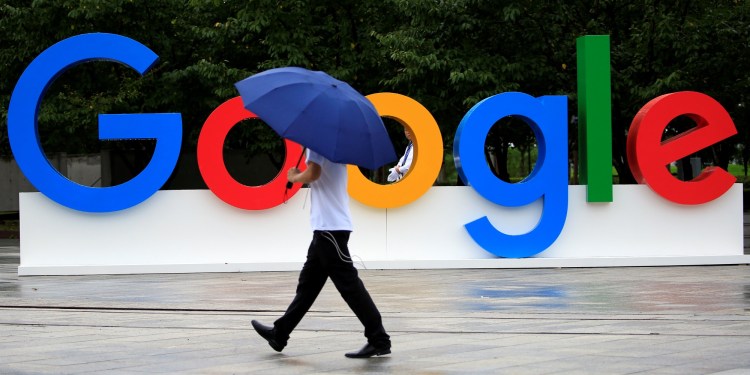testsetset
(Reuters) — Alphabet’s Google will stop giving advertisers the ability to target election ads using data such as public voter records and general political affiliations, the company said in a blog post on Wednesday.
The move coincides with pressure on social media platforms over their handling of political advertising ahead of the U.S. presidential election in 2020.
Google said it would limit audience targeting for election ads to age, gender, and general location at a postal code level. Political advertisers can still target contextually, such as serving ads to people reading about a certain topic.
Previously, verified political advertisers could also target ads using data gleaned from users’ behavior, such as search actions, that categorized them as left-leaning, right-leaning, or independent. They could also upload data such as voter file lists to target ads to a lookalike audience that exhibited similar behaviors to those in the data.
June 5th: The AI Audit in NYC
Join us next week in NYC to engage with top executive leaders, delving into strategies for auditing AI models to ensure fairness, optimal performance, and ethical compliance across diverse organizations. Secure your attendance for this exclusive invite-only event.
Google will enforce the new approach in the United Kingdom within a week, ahead of the December 12 general election. Google said it would enforce the limits in the European Union by the end of the year and in the rest of the world starting on January 6, 2020.
“Given recent concerns and debates about political advertising, and the importance of shared trust in the democratic process, we want to improve voters’ confidence in the political ads they may see on our ad platforms,” Scott Spencer, vice president of product management for Google Ads, said in the blog post.
The changes are expected to prompt political campaigns to shift some ads to television and Google’s smaller rivals.
Tim Cameron, CEO of FlexPoint Media, which buys ads for Republican campaigns, said he will stop licensing Google’s ad-buying tool in January because of the new restrictions.
The voter file feature had enabled FlexPoint to target people who did not regularly cast a ballot and encourage them to turn out. The loss of such targeting could result in “a slow decline of civic participation” and hurt the ability of “insurgent, underfunded candidates” to gain support, Cameron said.
Google also added examples to its misrepresentation policy to show that it would not allow false claims about election results or the eligibility of political candidates based on age or birthplace.
Last month, Google refused to remove an ad run by President Donald Trump’s reelection campaign on its YouTube video streaming service that Democratic presidential hopeful Joe Biden’s campaign said contained false claims, because it did not violate the policy.
A Google spokesperson told Reuters on Wednesday that the video would still be allowed under the latest policy.
Google also clarified that its policies for political and nonpolitical ads prohibit doctored and manipulated media.
On December 3, the company will expand its ad transparency efforts to ads related to state-level elections, including them in an online database created to catalog political advertising.
Twitter has banned political ads, while Facebook is reviewing its policies after criticism from lawmakers and regulators over its decision to not fact-check ads run by politicians.
(Reporting by Elizabeth Culliford, additional reporting by Paresh Dave, editing by Jonathan Oatis and Grant McCool)


